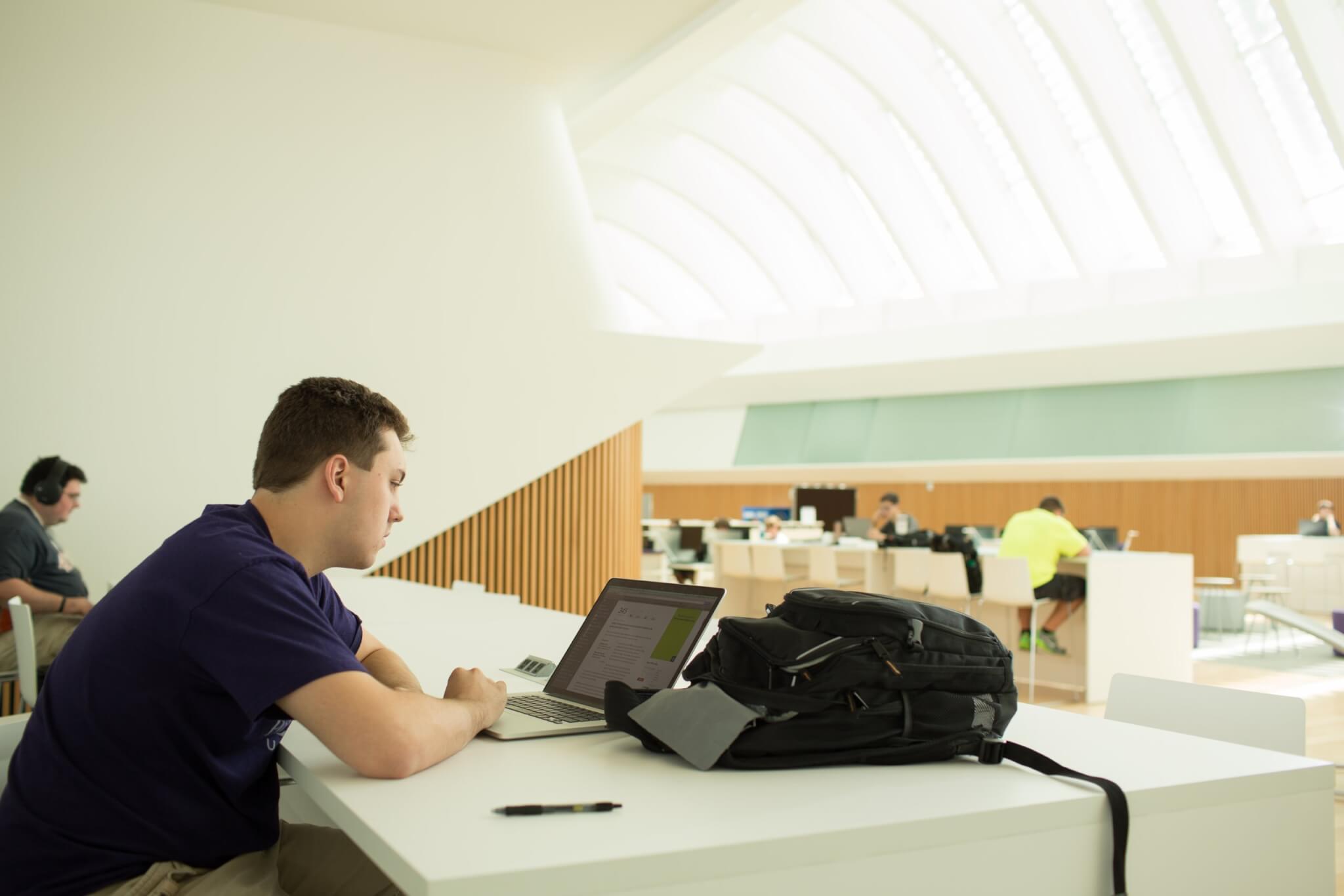Polk County’s Colleges Adapt to Keep Students Learning During Covid-19
Just as the show must go on, so must teaching and learning. Polk County’s seven universities and colleges are ensuring they do just that, adapting quickly with creative solutions to finish the spring semester and prepare for the summer and fall.
Learn more about how each institution is moving ahead in the time of the coronavirus pandemic and stay-at-home order.
Southeastern University
Southeastern University is also teaching students online through the rest of the spring semester, with in-person classes planned for the fall semester.
“Professors have adapted very well,” said Chief Communications Officer Dana Davis. “They have been innovative and flexible in adapting their courses while maintaining the academic rigor of the coursework for the subject matter.”
University President Dr. Kent Ingle said SEU is “constantly seeking innovative ways to provide affordable and accessible education for students. As an institution of higher learning, over the past eight years we have been at the forefront of developing need-oriented programs that can be delivered in a variety of formats beyond the traditional campus.”
Like others, though, the university has had to adapt quickly to deal with the virus. “It takes a focus on our core values in order to be able to pivot with changing times,” Ingle said. “One of those values is being a student-focused institution. Right now, we are making all of our decisions in light of serving our students, and that drives everything else.”
Florida Polytechnic University
Florida Polytechnic, the state’s 12th university will hold all summer classes online, all campus events have been canceled, and a curfew is in place for the few who remain in dorms on campus.
“Our faculty and academic affairs team were able to pivot to remote instruction at an incredible pace,” said Maggie Mariucci, assistant vice president of university relations. “Everyone got on board and we were delivering remote instruction within a matter of days — a true testament to our faculty and their dedication.”
Supporting its students has been a top priority for everyone there, she said. “We want to make sure we provide all the support and services they need through remote measures. In addition to providing the necessary academic support services, we’ve also developed remote programming for wellness, counseling, virtual events, etc. We are also in the process of developing a virtual student union to serve as a one-stop-shop for all of our students’ needs while we continue with our remote instruction.”
Polk State College
Polk State will continue teaching online through the summer, said President Angela Garcia Falconetti. No decision has been made concerning fall classes. “The college continues to monitor the rapidly evolving public health emergency closely and will make decisions in the best interests of students, faculty, staff and the community.”
Faculty and staff there have “demonstrated great resilience, as well as collaboration and innovation, a forward-thinking commitment to our students, and an unwavering willingness to help,” all in keeping with the college’s mission to provide students with an opportunity to achieve a higher degree, Falconetti said.
“These characteristics are not new to Polk State’s faculty and staff, but they have really shined through during this public health emergency, allowing the college to respond quickly to the needs of our students.”
Changing the way it operates has also taken a lot of work by others, including the staff of IT, student services and academic affairs, she said. For instance, academic affairs set up a phone line to assist students with technological needs. “The college has been able to distribute 25 Chromebooks to students in need and is working in partnership with local municipalities to create public Wi-Fi access points.”
Falconetti said she wants people to know Polk State will continue to offer affordable education to residents, even in these unprecedented times.
Florida Southern College
Florida Southern is offering its classes on many platforms, including Zoom, something it will continue through the summer semester.
Professors have been “amazing,” said President Anne Kerr. “They embraced the challenge and are wonderfully successful with the adaptation of their classes to this new pedagogy. I am so very proud of not only their skill to ensure a stellar learning experience for our students in this new format but also grateful for the wonderful spirit of cooperation and commitment that I see every day.”
Students also are adapting.
“Our students have a great attitude and are proceeding with commitment, good humor and compassion as they help each other,” Kerr said. “I have seen the spirit of professors and students, and the masterful teaching and impressive student learning outcomes that have emerged are truly inspirational.”
Even now, Florida Southern is “mission-driven with a focus on pervasive excellence,” she said. “We have a special and enviable sense of community and united purpose that will sustain us through this challenge.”
Keiser University
Keiser University has transitioned its classes online through May 1, the end of the spring semester.
“Many campus resources remain operational in person or remotely, including the library, bookstore, computer labs, writing studio, simulation labs and accessibility to administration in order to support its online services,” said Carly Evans, director of student services.
The university, which offers everything from certificates to doctoral degrees, is enrolling students for upcoming terms, she said. “New students beginning their degree program on May 11 and all returning students have been asked to stay in regular contact with their campus’ admissions, financial aid, academics, and registrars’ offices to seamlessly acclimate into their new courses via online or on-campus environment.”
Like other colleges, adapting is critical. “The university has been forced to make almost daily decisions to change policies in order to comply with evolving federal and state directives and to protect our campus communities,” Chancellor Arthur Keiser said in a statement. “Nevertheless, (our) incredible students have continued to work online in a variety of conditions to complete (their) rigorous coursework.”
Decisions are made with three core considerations in mind, Evans said:
- The health and well-being of students, employees, and others.
- Students can graduate as close to on time as possible.
- The university can continue operating and serving the community.
Webber International University
Dr. H. Keith Wade, president and CEO of Webber International University, said students are taking classes online for the rest of the spring semester. As for the future: “We’d like to do in-person summer classes – there’s a reason a lot of students choose face-to-face education – but realistically it will probably be August.”
Professors, teachers and students are doing “remarkably well” adapting to online teaching and learning, Wade said.
“We’ve had an emergency plan to go online within 48 hours in place for over ten years. Thank God it’s the first time we’ve ever had to implement it. There are always some things that don’t go as expected, but everyone is doing very well with it.” Wade said one thing they didn’t expect: Some students planned to go to their public library to study, only to find it closed.
It takes empathy to be adaptable, he said. “Our kids didn’t sign up to be online students. Some are experiencing financial hardship. Sure, they grew up with the internet, but playing games and doing academic research aren’t the same thing.”
His staff is going above and beyond to help students succeed, including things like:
- Librarians using Zoom to show students how to navigate online resources.
- Allowing students to take photos of their handwritten assignments so teachers can grade them.
- Helping students find Wi-Fi hotspots and linking them to companies providing free internet.
- Referring students “to our telemedicine and mental health providers. Basically, it’s treating students like you’d want someone to treat your kid. Sounds simple but makes a world of difference.”
“We’re a scrappy little place that has survived – nay thrived – through much worse,” Wade said. “These are horrible times and there are going to be some tragic things happen. But they’ll pass. And the need for a college education will be even greater than it was before this unprecedented time in our lives.”
Warner University
Leigh Ann Wynn, assistant vice president for advancement, said Warner will continue with online classes until after finals end the week of April 24. It is preparing to start the fall semester online if needed, but “it is our hope to open in a normal, traditional format.”
Warner uses Academic Success coaches, faculty members and athletic coaches (for student-athletes) to check in with students. Fifteen students remain on campus because they did not have a safe place to go during the stay-at-home order.
“One of the advantages at Warner is our faculty and staff are used to coming alongside our students on their academic journey. Now they are just doing it in a virtual format,” said President David Hoag. “The faculty are happy to do this because they care for their students and want to see them succeed.”
Like Webber, Warner was prepared to hold classes online, but now they are “even better prepared for the future,” Wynn said.



